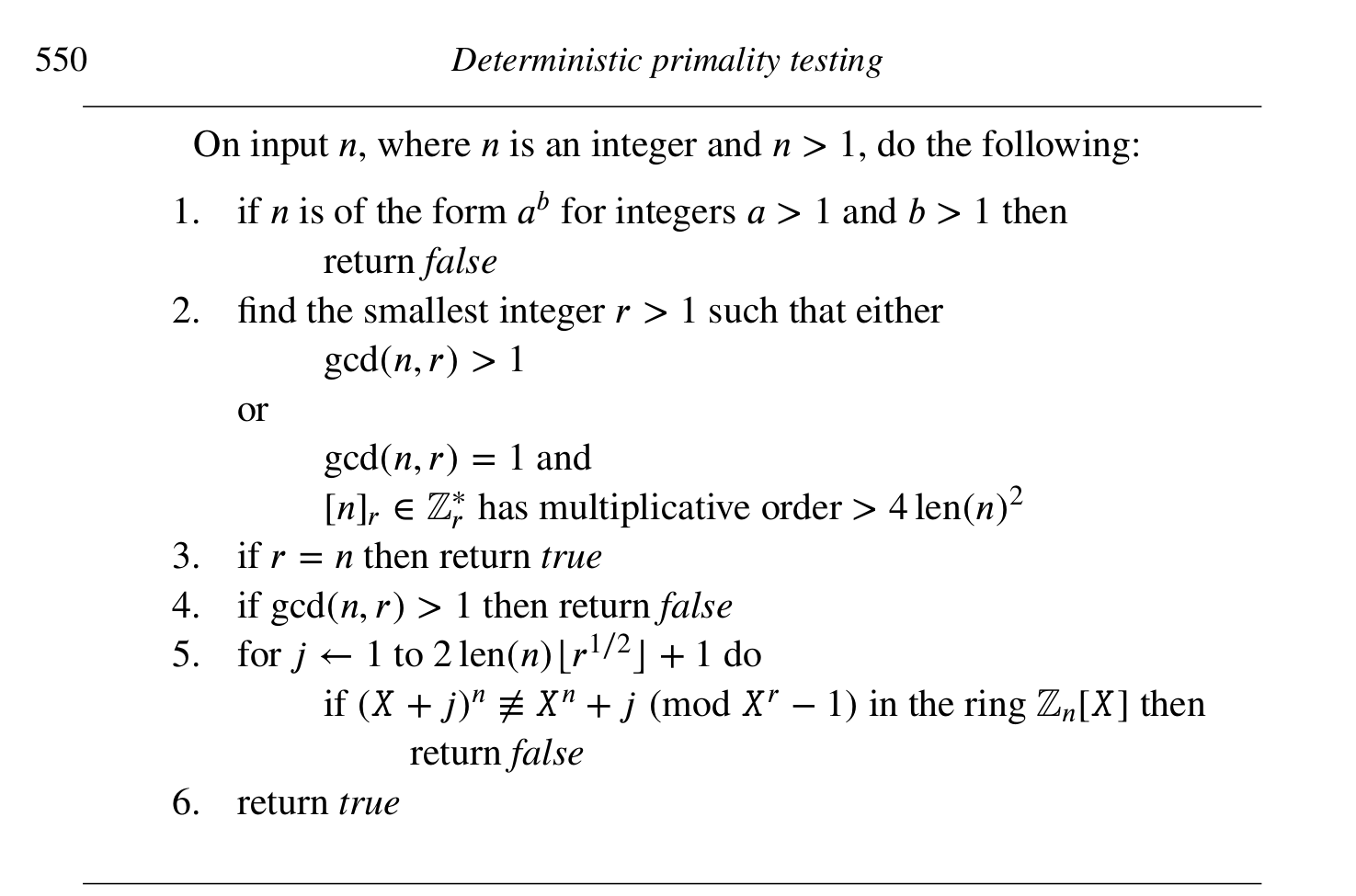I am implementing the infamous AKS deterministic primality test using SageMath.
My code is as follows:
# AKS Primality Test
def fast_exponentation(a, n):
"""
Computes a^n fast
"""
ans = 1
while n:
if n & 1 : ans = ans * a
a = a * a
n >>= 1
return ans
# Determines whether n is a power a ^ b, b > 1
def is_perfect_power(n):
lgn = 1 + ( len( bin ( abs ( n ) ) ) - 2)
for b in range(2,lgn):
# we use binary search to check if n root b is an integer
lowa = 0
higha = n
while lowa < higha - 1:
mida = (lowa + higha) // 2
ab = fast_exponentation(mida,b)
if ab > n: higha = mida
elif ab < n: lowa = mida
else: return True # mida ^ b
return False
def AKS_primality_test(n):
if n == 1: return None
if n == 2: return True
# if n is of the form a^b for a > 1 and b > 1 return False
if is_perfect_power(n): return False
print("Passed perfect power test")
# find the smallest integer r such that
# a. gcd(n,r) > 1 or
# b. [n]_r has multiplicative order > 4 log2(n)^2
for r in xrange(2,n):
# if r shares a non trivial factor with n, n is composite
if gcd(r,n) > 1: return False
# compute the multiplicative order of n in Z mod r
ord_r = mod(n,r).multiplicative_order()
if ord_r > 4*log(n,2)^2: break
print("min r found! r={}".format(r))
if r == n: return True
# We get the ring where we will check for primality
ZnX = IntegerModRing(n)[x]
ZnX_div_f = ZnX.quo(x^r-1)
for j in range(1, 2*log(n,2)*sqrt(r)+2):
if ZnX_div_f((x+j)^n) != ZnX_div_f(x+j^n):
print("The freshman dream test failed for j={}".format(j))
return False
print("Passed final test")
return True
print("271 is prime = " + str(AKS_primality_test(271)))
For the implementation I am following the scheme in page 550 of A Computational Introduction to Number Theory and Algebra, by Victor Shoup (available online in his webpage).

However, the code above, which should test whether 271 is prime, gives us the following output:
Passed perfect power test
min r found! r=269
The freshman dream test failed for j=1
271 is prime = False
This is wrong - 271 is in fact prime. So I assume I am misunderstanding how to use quotient rings in SageMath.
Why does the equality test fail?

